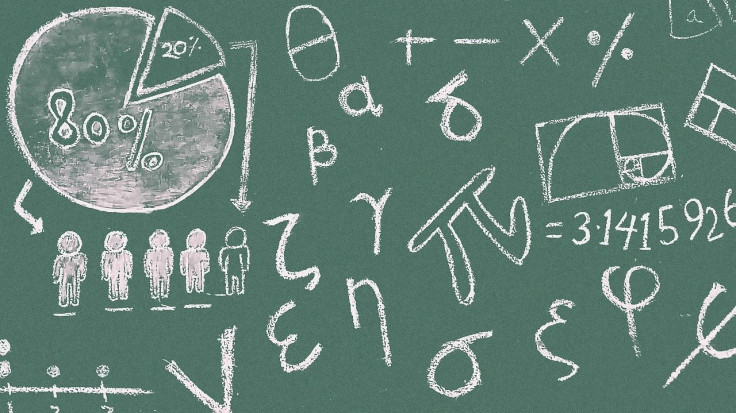Get Better Math Grades: Indirectly Reading And Talking About Math Can Improve Academic Performance

Simple questions can go a long way in helping young children understand math and perform well in class.
Which person in the candy shop has more jelly beans? Is the sleeping child above the bed or below it? These are the types of questions a Purdue University study says preschool children should be exposed to that include “math language.”
“Simple math-related vocabulary and concepts, such as ‘more,’ ‘a lot,’ ‘some’ and ‘fewer,’ improves their mathematical skills,” the university said. In that statement, David Purpura, an assistant professor of human development and family studies, said children between 3 and 5 years old who were read stories with that sort of language and looked at pictures, and then discussed the concepts, “scored higher on math tests for not just these specific words, but also math skills that were not covered in the books.”
Research has shown that the early education years are crucial for building math competence. The National Council of Teachers of Mathematics says “an engaging and encouraging climate for children's early encounters with mathematics develops their confidence in their ability to understand and use mathematics.”
The latest numbers from the federal government’s National Center for Education Statistics show the United States is not a top performer in mathematics worldwide. Countries like China, Singapore, South Korea, and Japan in Asia come out in the lead on average math scores, followed by Liechtenstein, Switzerland, the Netherlands, Estonia, Finland and then Canada. There are 16 more countries between those top math achievers and the U.S.
Improving math language understanding early on could help: “It's difficult to ask a child to compare quantities if they don't know what ‘more’ or ‘fewer’ means,” Purpura said. “If they can understand ‘before’ and ‘after,’ they are more likely to know, or be able to understand, what number comes after three. When children learn this language in a math context, it acts as a springboard to learn about other mathematical concepts.”
Researchers used several books in the study, including “Just Enough Carrots” by Stuart J. Murphy, which is about animals shopping for groceries. “Albert is Not Scared” by Eleanor May is about a mouse at an amusement park.




























